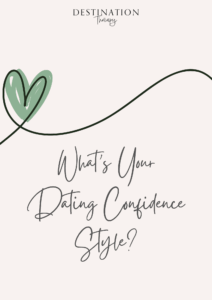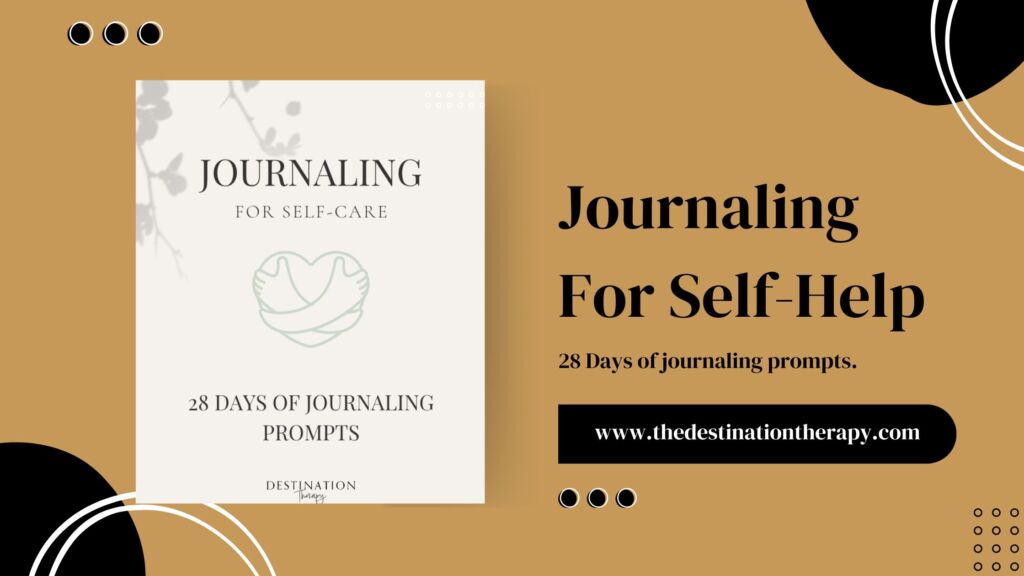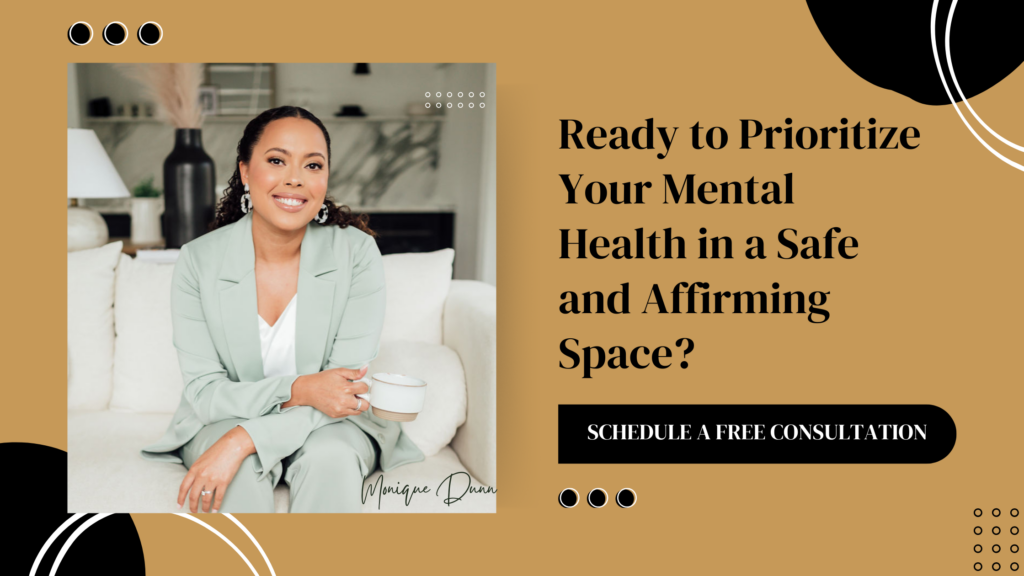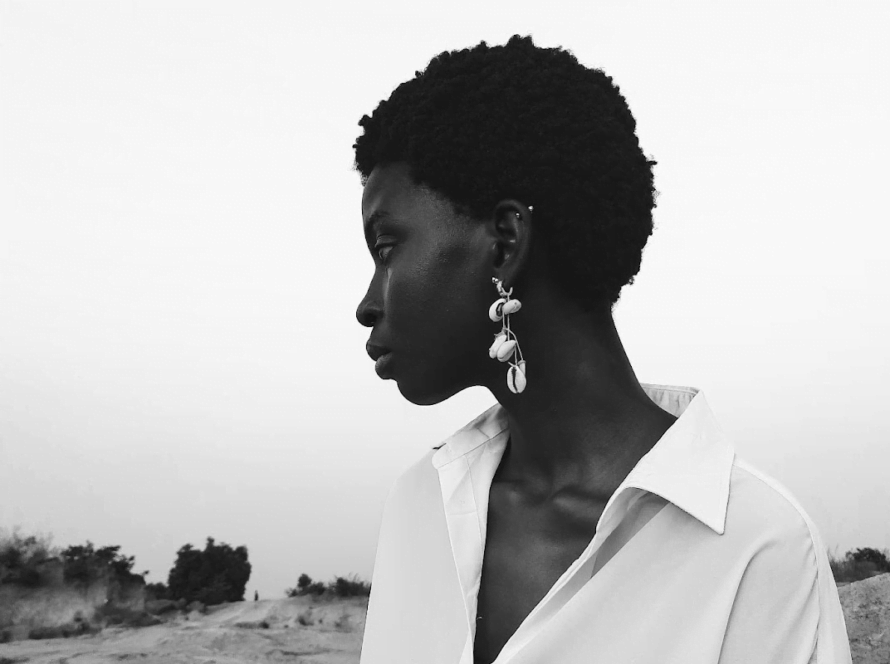Modern dating is constantly changing. Finding love today looks very different from how it did even a generation ago. Between demanding careers, packed schedules, and the rise of dating apps, many professionals ask themselves: Is it better to meet someone online or in real life?
In the age of swipe-right romances and profile pictures, the dynamics of dating have undergone a profound transformation. While online platforms promise convenience and a seemingly endless pool of options, the thrill of offline connections holds its own unique allure, and we’ve been seeing a pendulum swing back to offline dating in the last couple of years. Both online and offline dating have unique benefits and challenges. Understanding the psychology behind these two approaches can help you recognize which path feels most natural, and where therapy can support your confidence and clarity.
The psychology of attraction plays a pivotal role in shaping our experiences, influencing not just how we select potential partners but also how we engage and connect with them. From the instant chemistry sparked in face-to-face encounters to the curated personas displayed on dating apps, our emotional responses and social interactions vary dramatically.
In this blog, we delve into the intricate mental processes behind attraction, exploring the contrasts between online and offline dating, and uncovering what drives us toward one approach over the other, especially when you are a busy professional with a tight schedule.
Table of Contents
But First, What is Attraction?
Before exploring where attraction happens, online or offline, it’s important to understand what attraction actually is.
Attraction is more than physical appearance. Psychologists define it as a combination of physical, emotional, and intellectual responses that draw people together. Research highlights several key factors that influence attraction:
- Physical cues like appearance, body language, and voice.
- Psychological compatibility, including shared values and sense of humor.
- Proximity and availability, or how accessible someone feels in your daily life.
- Reciprocity, the feeling that your interest is being returned (APA, 2019).
These elements interact differently in online versus offline settings. For example, in online dating, attraction often starts with photos and texts, while in-person encounters allow for immediate non-verbal cues like eye contact, tone, and presence.
Understanding these layers of attraction helps explain why people may feel more drawn to one dating environment over the other.
Online Dating: Convenience Meets Choice
For professionals with high-stress, high-demand careers, online dating often feels like the practical, most efficient option. You can browse profiles during your commute, match with people outside your social circles, and filter based on your preferences.
From a psychological perspective, online dating taps into several themes:
- Efficiency and access: Dating apps provide exposure to people you might never otherwise meet, which is especially appealing for busy professionals (Finkel et al., 2012).
- Self-presentation: The beauty of online dating is that you can put your best foot forward by curating photos and highlighting traits you want others to see! This control can feel empowering, especially for those who value achievement and professionalism.
- Decision fatigue: The flip side of online dating is that endless choices can feel overwhelming. And this isn’t the only flip side, studies show that having too many options can actually make it harder to recognize genuine connection (Finkel et al., 2012) (you know, when you end up just swiping “no” on 10 people in 5 seconds without even really taking the time to read their full profile).
Unfortunately, even modern online dating comes with unique challenges for BIPOC professionals. Research suggests racial bias and microaggressions are still prevalent on many platforms, creating added frustration and stress (Park & Jin, 2022). These experiences can reinforce feelings of exclusion and impact confidence in pursuing online matches.
The Unique Challenges BIPOC Professionals Face in Online Dating
While dating apps have created opportunities for connection, they are not always experienced equally across communities. For BIPOC professionals, especially women, online dating often brings additional layers of complexity that go beyond basic swipe fatigue. Research shows that racial bias and microaggressions are still common in online dating spaces, and BIPOC professionals often report additional frustrations compared to their non-BIPOC peers (Park & Jin, 2022).
Key Insights and Relevant Statistics
- Feeling Unsafe is Common:
Safety concerns are alarmingly high across racial groups. According to Pew:- 59% of Black adults, 57% of Hispanic adults, and 54% of Asian adults say they feel unsafe using dating apps—significantly higher than the 46% of white adults who express this concern.
14 Dating Statistics By Race in the US (2025)
- 59% of Black adults, 57% of Hispanic adults, and 54% of Asian adults say they feel unsafe using dating apps—significantly higher than the 46% of white adults who express this concern.
- Optimism About Dating Is Uneven:
- When asked whether online dating has made it easier to find a long-term partner, only 30% of Black adults said “yes,” compared with 47% of white adults. Hispanic adults reported 31%, while Asian adults were closer to 46% in feeling that online dating has helped.
AP News
- When asked whether online dating has made it easier to find a long-term partner, only 30% of Black adults said “yes,” compared with 47% of white adults. Hispanic adults reported 31%, while Asian adults were closer to 46% in feeling that online dating has helped.
- Harassment and Unwanted Behavior:
- Across all users, about 48% have experienced at least one form of unwelcome behavior, such as unsolicited messages, offensive remarks, or continued contact after indicating disinterest. While Pew didn’t break this down by race, these figures reflect the broader environment BIPOC users navigate.
Pew Research Center. From Looking for Love to Swiping the Field: Online Dating in the U.S.
- Across all users, about 48% have experienced at least one form of unwelcome behavior, such as unsolicited messages, offensive remarks, or continued contact after indicating disinterest. While Pew didn’t break this down by race, these figures reflect the broader environment BIPOC users navigate.
Real-World Impacts on BIPOC Professionals
These statistics are not just numbers on a screen; they reflect real-life experiences that matter deeply and can affect an individual’s hope for finding a partnership or individual self-esteem.
- Racial Preferences and Exclusion: When profiles list racial preferences or “dealbreakers,” it can feel less like personal taste and more like rejection based on identity.
- Objectification and Stereotyping: Many BIPOC users report being exoticized or fetishized; experiences that reduce their nuanced selves to superficial racial tropes.
- Persistent Disrespect: Microaggressions, from jokes about accents to stereotyped comments, may seem minor individually but pile up into emotional fatigue.
- Underrepresentation in matches. Studies show that Black and Asian professionals, for example, often receive fewer matches or responses on popular platforms, leading to feelings of invisibility and discouragement (Park & Jin, 2022; Pew Research Center, 2020).
For busy professionals who already navigate high-pressure careers, these added stressors can impact self-esteem and make online dating feel more draining than rewarding. It’s not just about “finding love”; it’s about facing systemic biases in spaces that are supposed to foster connection.
How Therapy Can Help
Therapy offers more than coping strategies; it’s about reclaiming agency and authenticity:
- Validation of Experience: Therapy provides a safe space to acknowledge that these challenges often stem from broader bias, not from personal shortcomings. We tend to forget about this one.
- Rebuilding Confidence: Through gentle support, professionals can rebuild trust in the dating process and rediscover their self-worth. There are people out there who are ready to meet us and connect with us exactly as we are. Those are the people we’re on dating apps for.
- Cultural Resilience: Therapy helps individuals tap into their values, traditions, and strengths, thereby grounding their dating experiences in a fuller sense of identity. When we have a clear sense of who we are, we get a clearer sense of what kind of partner will add to our lives.
Setting Boundaries: Recognizing microaggressions and establishing personal boundaries becomes a source of empowerment, not avoidance. Two things can be true at the same time: I wish BIPOC folks didn’t have to be so resilient so often, and it’s a great skill to practice.
Meeting Someone “In the Real World”: Offline Dating
Meeting someone face-to-face, whether at a community event, networking mixer, or through mutual friends, often brings an immediacy and richness that online connections can’t replicate. That in-person spark of body language, tone, and energy offers a deeper sense of attraction and authenticity (APA, 2019).
Some psychological advantages of offline dating include:
- Body language and non-verbal cues: Eye contact, tone of voice, and presence play powerful roles in building attraction. These elements are often missing in online interactions (American Psychological Association, 2019).
- Authenticity: In-person conversations give less time to curate responses, allowing for more genuine and authentic interactions.
- Confidence: Approaching someone in real life requires courage! Even for professionals who are used to maintaining control in their careers. Not every approach is a success, but how good does it feel when you hit it off with someone you took the step to approach?! High risk, high reward.
For BIPOC professionals, offline dating can also be grounding. Connecting within familiar or culturally aligned spaces may provide a greater sense of safety and support compared to the unpredictability of online platforms.
The Different Layer for BIPOC Professionals
Just like with online dating, it’s important to recognize some of the nuances and obstacles for BIPOC professionals in offline dating:
- Low Representation in Social Dating Spaces
Finding culturally aligned spaces can be challenging. Many mainstream dating or networking events are less diverse, which limits opportunities for organic, comfortable connection. Without representation, attendees may feel like cultural outsiders rather than potential partners or equals. This is also true for the LGBTQ+ community. Thankfully, there has been a rise in singles’ events that are specifically geared towards the LGBTQ+ community, but they might be farther apart and fewer in between.
- Cultural Expectations and Familial Pressures
Many BIPOC professionals feel the pull of cultural expectations, such as dating within their community or adhering to certain norms, even when their personal and professional networks are more diverse. Balancing cultural obligations with personal desire can create internal tension and dating hesitancy.
- In-Person Microaggressions and Assumptions
Offline bias can be subtle but impactful: mispronunciation of names, assumptions about success, or offhand comments about cultural background can create moments of discomfort. These microaggressions, whether in professional settings or communal ones, can make even positive-sounding compliments feel pointed or demeaning.
- Hypervisibility and Conditional Acceptance
BIPOC professionals may feel highly visible in settings where they’re one of few people of color. While that visibility can heighten confidence, it can also invite others to chip away at it—through intrusive questions or stereotypes. In dating spaces, this can translate into anxiety about having to perform or represent.
Offline Dating Events as Safer Spaces
Some BIPOC individuals may find relief in curated dating events designed for people of color. A 2022 Business Insider article highlighted how such events offer “safe spaces” where cultural identity wasn’t something to negotiate or justify; it simply wasn’t an obstacle (Business Insider, 2022) (again, the same goes the queer folks and queer friendly events).
How Therapy Can Make a Difference
Therapy offers a grounded way to navigate the emotional complexity of offline dating by helping:
- Unpack cultural and familial expectations to better own your dating choices without guilt or ambivalence.
- Strengthen authentic presence so that vulnerability and cultural pride can shine without feeling risky.
- Process microaggressions and bias, giving voice to subtle pain points and reclaiming emotional energy.
- Identify supportive environments such as culturally affirming spaces or community groups where dating feels enriching, not exhausting.
Therapy doesn’t just provide coping tools; it preserves your energy so that chemistry and real-life connection don’t become emotional drain, but instead feel affirming and sustainable. I know we’re touching on some hardships of dating, but remember: At its core, dating is supposed to be fun!
Why These Paths Feel So Different
One reason online and offline dating feels so different for busy professionals is the role that career stress plays in relationships. Studies have shown that people in high-demand jobs often prioritize efficiency and control in their personal lives as a way to counterbalance long hours and heavy responsibility (Pew Research Center, 2020).
This means online dating might feel easier to manage logistically, while offline dating may feel too time-intensive. But if dating feels like another “task” on your to-do list, the process can lose joy and become draining. Therapy provides a space to pause, reflect, and recalibrate priorities, ensuring dating doesn’t become another source of stress.
In short, there really isn’t a “right” way to date. It all will boil down to what your priorities are, what you are looking for, and how you are willing to challenge yourself to find a potential partner.
- Control vs. spontaneity: Online dating offers control over presentation and pacing. Offline dating invites openness and authenticity.
- Surface vs. depth: Profiles provide quick snapshots of identity, but in-person encounters reveal nuance and depth that text alone can’t capture.
- Comfort zone vs. courage: Online dating may feel safer for those who want to minimize vulnerability, while others thrive on the energy of face-to-face connection.
Psychologists note that attraction is complex and influenced by context as much as personal preference (APA, 2019). Therapy can help uncover the underlying patterns driving these choices. For example:
- Are you avoiding offline dating because of social anxiety?
- Do you rely on apps because rejection feels easier to manage virtually?
- Do you rely on apps because you can create a curated version of yourself?
- Do you mistrust chemistry because of past heartbreak?
We’re only scratching at the surface here. Unpacking these questions with a professional helps you show up for dating with more clarity, regardless of the setting.
Final Thoughts: What is Better? Online or Offline Dating?
In the end, it is a personal decision, as we discussed in our previous article; however, you can also try both and see for yourself before committing to a single option. Here is how a balanced approach:
- Set app boundaries. Limit swiping sessions to 10–15 minutes a day to avoid burnout and decision fatigue. Focus on meaningful conversations rather than endless scrolling. And please, please go through someone’s entire profile before deciding to swipe yes or no on a person.
- Create intentional offline opportunities. Choose spaces aligned with your interests, whether that’s professional mixers, fitness classes, or cultural events where conversations can unfold naturally. Be open to the idea that that could be enough, you never know what might happen!
- Check in with yourself. Notice when dating feels heavy or discouraging. Therapy can help you identify whether stress, burnout, or old relationship patterns are influencing your approach. Again, dating is meant to be a fun experience. If it isn’t, it’s time to check in and address this feeling.
Research suggests that people who use both online and offline strategies report greater satisfaction in dating outcomes compared to those who rely on only one path (Finkel et al., 2012). The key is not the platform but the mindset and confidence you bring to it.
Whether you find love through an app or across the room at a community event, the most important factor is how you show up for yourself. Online dating and offline dating may feel different, but they’re both valid paths to meaningful relationships.
For busy BIPOC professionals balancing high-demand careers, it’s not just about where you meet someone but how ready you are to build connections. Therapy can provide the clarity, confidence, and emotional resilience needed to pursue love in a way that feels authentic to you.
Discover Your Dating Confidence Style
To help you discover whether you’re more likely to thrive online, offline, or somewhere in between, we created a fun resource just for you:
 What’s Your Dating Confidence Style?
What’s Your Dating Confidence Style?
This is a fun way to find out more about:
- Which dating approach naturally fits your personality and lifestyle?
- Your frustrations with dating
- How to make dating easier for you
However, the quiz is just the tip of the iceberg; this resource also includes 10 affirmation cards to boost your confidence, 5 conversation starters to help you break the ice during a date, and 5 post-date journaling prompts to help you reflect. Your results can also serve as a conversation starter in therapy, especially if you’re navigating dating anxiety or struggling with confidence in relationship.
We Are Here For You
Whether you’re battling anxiety, depression, perfectionism, or navigating relationship challenges, Destination Therapy empowers you to achieve the peace, ease, and fulfillment you deserve.
We offer convenient telehealth across Texas, Massachusetts, California, Florida, Utah, and New York.
FAQ
Why do online and offline dating feel so different psychologically?
Online and offline dating feel different because each activates distinct psychological processes: online dating emphasizes curated self-presentation, choice overload, and pre-screened profiles, while offline dating relies more on nonverbal cues like eye contact, tone of voice, and physical presence. These differences affect attraction, connection, and emotional engagement.
Does online dating change how attraction happens?
Yes. In online dating, attraction often starts with visual impressions and selective self-presentation, whereas offline attraction arises from real-time interpersonal cues such as body language and shared context. These different entry points shape how feelings develop and how quickly people decide they’re interested.
Do relationships that start online feel less satisfying than those that start offline?
Some studies find that couples who met online report slightly lower relationship satisfaction and a lower intensity of love than those who met offline, particularly on long-term commitment measures. However, these differences are averages and don’t mean online relationships can’t be strong or fulfilling.
Why does decision overload happen more in online dating?
Online dating presents a large number of potential matches at once, which can lead to choice overload, a psychological state where too many options make it harder to make decisions and recognize a genuine connection. This can reduce satisfaction and slow emotional engagement.
Can online dating reduce fear of rejection compared to offline dating?
Yes. Online settings reduce the immediacy of face-to-face rejection and allow people to interpret non-responses in multiple ways (e.g., as someone not seeing the message). This can reduce anxiety about initiating contact compared to approaching someone offline
Does meeting someone online affect long-term relationship outcomes?
Research shows mixed results: some studies suggest higher breakup rates or lower commitment among couples who met online than in offline relationships, while other findings show little difference in overall success. Relationship quality depends on many factors beyond where two people first met.
How do personal mindset and context shape online vs offline dating experiences?
Personal priorities, confidence level, social anxiety, and time constraints influence how fulfilling each dating mode feels. For example, busy professionals might prefer online dating for efficiency, while others may find greater authenticity and connection in offline encounters.
Are the psychological rewards of offline dating different from online dating?
Offline dating engages immediate interpersonal engagement, such as eye contact, authentic responses, and social presence, which can create deeper emotional resonance. Online dating offers convenience and broader access, but at the potential cost of reducing spontaneous, embodied connection.
References
- American Psychological Association. (2019). The Psychology of Attraction.
https://www.apa.org/news/press/releases/stress/2019/attraction - Business Insider. (2022, November). Why some women of color are turning to race-based dating events instead of apps.
https://www.businessinsider.com/women-of-color-dating-events-alternative-dating-apps-2022-11 - Finkel, E. J., Eastwick, P. W., Karney, B. R., Reis, H. T., & Sprecher, S. (2012). Online Dating: A Critical Analysis From the Perspective of Psychological Science. Psychological Science in the Public Interest, 13(1), 3–66.
https://journals.sagepub.com/doi/10.1177/1529100612436522 - Pew Research Center. (2020, February 6). The virtues and downsides of online dating.
https://www.pewresearch.org/internet/2020/02/06/the-virtues-and-downsides-of-online-dating - Pew Research Center. (2023, February 2). From looking for love to swiping the field: Online dating in the U.S.
https://www.pewresearch.org/internet/2023/02/02/from-looking-for-love-to-swiping-the-field-online-dating-in-the-u-s - McConnell, E. A., Janulis, P., Phillips, G., Truong, R., & Birkett, M. (2018). Racialized Sexual Discrimination and Mental Health Among Sexual Minority Men of Color. Journal of Health and Social Behavior, 59(4), 475–492.
https://pmc.ncbi.nlm.nih.gov/articles/PMC9656016 - Lin, K. (2015). Online dating preferences of Asian Americans. Sociological Inquiry, 85(3), 393–420.
https://www.researchgate.net/publication/278078426_Online_dating_preferences_of_Asian_Americans





